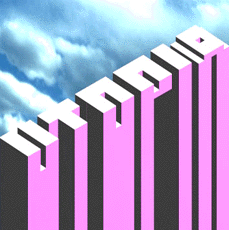|
LITR 5439 |
Literary & Historical Utopias: Model Assignments
Sample Essay 2 |
|
Jenna Zucha
Essay II: Utopian Literature as a Platform for Hope
Utopian literature, if anything, is a vehicle for hope and progress. Utopian
ideals are apparent in The Declaration of
Independence in which the Founding Fathers hoped for a nation bound by
“truths… that all men are created equal.” Martin Luther King dreamed of a nation
joined together where all men “will not be judged by the color of their skin but
by the content of their character.” In both documents the
dream is ever imminent but never
fully realized, yet the idea remains important. This genre is vital to education
on the secondary and collegiate level because it provides platforms for
discussion in History, economics, politics, psychology, and social studies
(Objective 4a) while inviting critical thought into how these ideas and concepts
are communicated. Valerie Fournier provides an alternative purpose for utopian
thought in her essay “Utopianism and the cultivation of possibilities.” She
explains that “utopianism is not a blueprint for a ‘perfect society,’ but may be
better conceptualized as a movement of hope” (192). This falls into Objective 5C
in reference to ways of avoiding the standard idea that utopias “just don’t
work,” so what is the point in reading about them? Utopian and dystopian
literatures are different, but both serve a similar purpose: to excite change
and progress within the community. Utopian literature inspires through a
preconceived vision of good while the dystopian narrative inspires change
through conflict and transformation.
My first research posting for this seminar focused on the rise of dystopian
literature in the young adult community and its impact on secondary curriculum.
My investigation into this phenomenon showed that the appeal behind dystopian
literature for young people might also serve as its strongest educational
selling point. The primary text used here to highlight the attractions of
dystopian literature is Anthem by Ayn
Rand because it combines utopian and dystopian elements, and it is currently
used in secondary education. Young readers crave a hero they can relate to and
the dystopian protagonist meets this desire on several levels. The dystopian
hero is an outsider to the community; he or she is different in a way that
separates them from the in-group. The protagonist in
Anthem attempts to follow the norms
established by the utopian society, but he knows that he is different from
everyone else physically and mentally: “we alone who were born with a curse. For
we are not like our brothers” (15). Young people can make strong connections to
this because they are struggling with identity and a need to fit in. Another
aspect of the dystopian hero that appeals to the younger audience is the
conflict with authority. In Anthem
Equality 7-2521 wants to please authority and gain acceptance “we shall go to
this Council and we shall lay before them, as our gift, the glass box with the
power of the sky” (65), but at the same time he wants the freedom to think,
progress, and make choices on his own: “we think that the council of Scholars is
blind. The secrets of this earth are not for all men to see, but only for those
who will seek them” (54). The growth and transformation of the dystopian hero
appeals to a young audience because they too are in a time of transformation.
Young readers are not only drawn to dystopian texts because they can relate to
the characters, but they also gravitate towards a world that is completely
different from their own with endless possibilities. This goes far beyond the
escapist theory attached to Fantasy and Science Fiction within YA literature.
The dystopian text creates a world of speculation where the reader can
conceptualize possibilities within the safety-net of fiction. The rise of
utopian and dystopian literature may be serving a greater need for our youth. It
serves as a means to evaluate teaching and learning methods in which the
instructor and students exchange standard knowledge and new contexts or
applications (Objective 5D). This “speculative fiction” has fused the ground
between fantasy and realism and is allowing the adolescent reader to explore
worlds completely different from their own without sacrificing the issues
troubling us all.
Utopian and dystopian literature is influential to education because “it is
about establishing the conditions for the development of alternatives” (Fournier
192). Utopian literature is ineffective if it is approached as a means to an
end. Readers of utopian literature should be inspired by the idea and not
scrutinize the impossibility of one person’s design over another’s. The author
of The Dispossessed, Ursula Le Guin,
comments on a critical review of her narrative and the criticism surrounding the
end of the book, “The circle is open. The doors are open. In order to have doors
open, you have to have a house” (308). The author provides a framework for the
audience to expound upon. Applying utopian and dystopian text to the secondary
interdisciplinary curriculum and college level creates an outlet for social
debate “by creating public spaces and channels through which ideas,
possibilities and hopes can circulate” (Fournier 210). This genre meets several
educational needs for progress and transformation while providing a framework
for a possibly great story.
Works Cited
Fournier, Valerie. “Utopianism and the cultivation of possibilities: grassroots
movements of hope.“
Utopia and Organization.
Ed. Martin Parker. The Sociological Review.
Le Guin, K. Ursula. “A Response, by Ansible, from Tau Ceti.”
The New Utopian Politics of Ursula K. Le
Guin’s The Dispossessed.
Ed. Laurence Davis and Peter Stillman:


